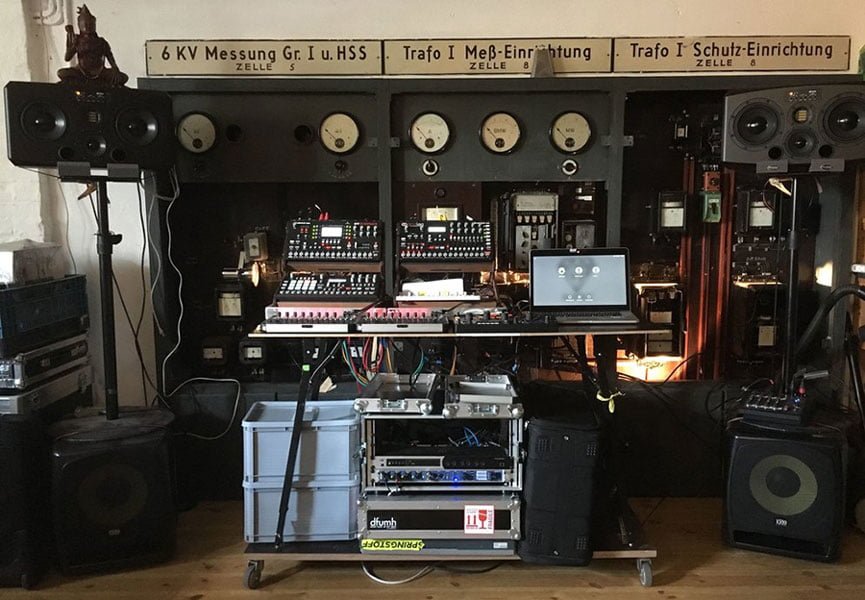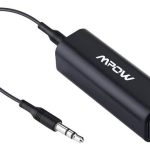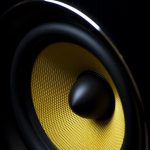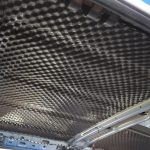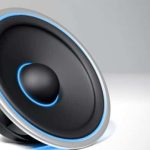Distortion is generally any unexpected alteration in the original sound to something different. Distortion may have many causes, including high volume. Distortion is often confused with noise. Noise, on the contrary, is an external signal that finds its way into the original sound signal, thereby making the original sound have extra, unwanted signals. Distortion is simply about an original signal being altered into something else. With that said, let’s look at the reasons why speakers and subwoofers distort at high volumes.
Explaining distortion at high volumes
Distortion in speakers and subwoofers at high volumes can be a result of:
Stressed speaker cone
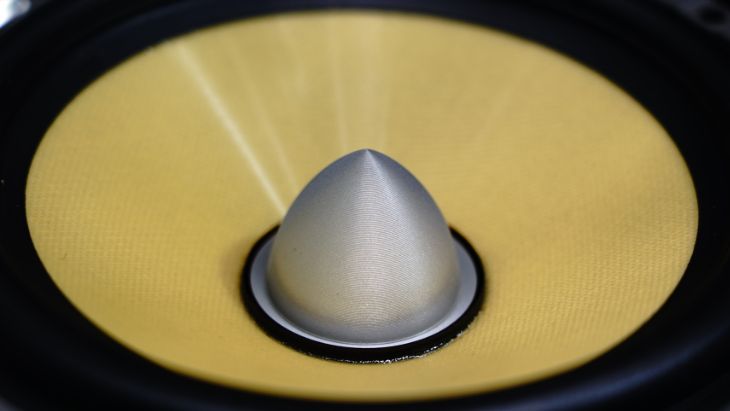
The distortion often happens when a speaker develops mechanical failure due to high volume. When a speaker receives a higher volume than it can handle, the cone may move way beyond what it’s designed to, such that the cone material becomes stressed. The result is distortion and worse, there may be total damage to the speaker since the components may tear or become loose.
Melting speaker cone
When a speaker receives a higher volume than it can handle, it can experience thermal failure that results in distortion. Feeding a speaker with too much power results in a lot of heat on its components. As the heat exceeds, the glue that keeps the cone held together in place starts melting. The speaker ends up producing distorted sound. If you continue feeding it with excessive volume for prolonged periods of time, distortion will worsen and the speaker may end up blowing up.
Melting coil
Excessive volume can also melt the wires that make up the voice coil. These wires are extremely delicate and can get damaged easily. Excessive heat may melt them leading to distorted sound. The wires can even burn out and this will mean that your speaker is damaged and requires a new coil.
Poor gain and boost control
If gain and boost in an amplifier are set higher than what the subwoofer can handle, it will result in mechanical and thermal failure, hence distortion or even permanent subwoofer damage. Thus, whenever you notice some distortion in your speaker or sub, then you’d rather readjust the volume, gain, and bass controls or the equalizer to avoid permanent damage.
Using a crossover incorrectly
Also, if the volume is too high and you’re using the crossover incorrectly, then the subwoofer may distort or even get damaged. Also, if you have wired the speaker or subwoofer incorrectly, then there can be an incorrect load on the speaker. The speakers will end up distorting as the volume level of the source is increased.
Incorrect cabinet size
If a speaker or subwoofer is enclosed in the wrong cabinet size, then the sound it produces may distort at high volumes. For instance, if the sub-cabinet is extremely large, its suspension will be affected such as at that high volume, that the surround may tear or detach from the frame, leading to distortion or permanent damage.
Overloaded source
It’s important to understand how much power a speaker can handle. If the source of the audio, such as a computer or mic gets overloaded with audio, then you’ll get distortion. For instance, if a mic is detecting volume level beyond what it can handle, you’ll eventually get distorted sound from the speaker since the mic will send distorted sound. Also, any musical instrument that sends excessively boosted signals may overload what the speakers can handle and this will result in distorted audio.
Whenever you feed speakers and subwoofers with volume levels they can’t handle, distortion is expected. For instance, if you set up equipment that can’t handle the kind of volume your live concert needs, pushing them beyond what they can handle will surely deliver distorted audio.
Also, if your subwoofer or speaker is faulty, then it’ll fail to produce the kind of audio quality you want. It may distort since it’s unable to process the sound properly. You may fail to notice distortion at low volume but as you raise the volume higher, then the distortion will be heard even more. Well, proper knowledge of the Most Common Problems and Solutions of Your Stereo System may help you in the long run.
Michael Evanchuk is a San Francisco-based sound engineer with 20 years’ experience installing, troubleshooting, and repairing commercial, automotive, and household sound equipment. Evanchuk owns an auto stereo center, where he offers highly competitive car audio installation and repair services. He has written dozens of articles on different sound engineering topics, all of which have been published in leading journals, blogs, and websites.

